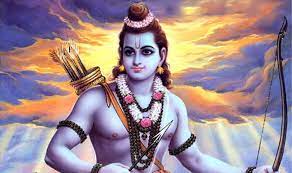India’s immortal tale of love, adventures and wisdom


The timeless epic Ramayana needs no introduction to Hindus. Contained in it are a wealth of lessons for mankind based on a philosophy of life that emphasizes Dharma over Adharma, truth over falsehood and duty over desire. I have seen performances of Ramleela in villages in India, and even in distant countries such as Indonesia and Thailand. Countries like Cambodia and the Philippines have also adopted the Ramayana as part of their culture. But why is the Ramayana so popular in many countries of the world?
The main characters, Rama and Sita, are from the royal family but they lived a simple life. Ramayana teaches us the code of conduct more precisely the Dharma as it applies through the ages.
The major takeaway lessons are:
1) Respect the elders and value family unity more than greed and power.
2) Respect all people regardless of color, creed or caste.
3) Forgiveness prevails over revenge. 4)The victory of Dharma over Adharma (righteousness over non-righteousness).
In this issue, we are pleased to present a voluminous and well-researched book on this immortal epic. It is written by Dr Dadabhai Prithipaul. Despite his excellent academic credentials, he was unable to find work in Mauritius and emigrated to Canada after obtaining his PhD in contemporary religions from the Sorbonne University in France. He then wrote a number of books and wanted to launch some of his works, but successive governments did not even have the courtesy to honor his contribution to the promotion of Hinduism.
In today’s world, we have forgotten the above teachings of the Ramayana and what we see around us is the gradual deterioration of society. It is up to the leaders of the country to apply the principles of Dharma and equity.
Some time ago, a lady asked a question on a private radio station: “Which leader should my son follow?” She regretted that no political leader in Mauritius had the qualities of a respectable, dedicated and an honest politician.
Today, qualified Mauritians are forced to leave the country because most of the top positions are not advertised. Most of the positions are given to friends or candidates recommended by so-called socio-religious organizations which also now practice dynastic succession as our political leaders do. Many of these organizations are now controlled by people who want power and money by means fair or unfair. Therefore, arises the great need for our leaders to understand the principles of Dharma and apply the same rules in their lives and in their party’s and the country’s governance. As the management of a country should be based on merit, efficiency and transparency. As for the management of socio-cultural organizations, it requires a new approach to rid them of nepotism and bad practices. In the first instance, no member of the board of these organizations should be an employee of the government and the auditing of the accounts should be carried out by a qualified and independent accountant. Although the rules of NGOs and associations prescribe that the annual accounts must be posted on the notice board, how many of them comply with this? Do many of them respect this rule?
In Mauritius, every temple is an NGO, so there are over 1000 temples and as many NGOs. Because the country’s prime minister has successively been a Hindu, save for a brief period, all the ills that plague the country, especially those related to government decisions, are blamed upon the Hindu community. This is also so because of the visible proximity of the leaders of the Hindu socio cultural organizations with politicians in power during various functions, ALTHOUGH, other communities also leverage political influence and extract advantages both overtly and covertly. Whatever be, it is time for Hindu society, and absent genuine and high caliber thinkers and opinion makers from the community to engage in serious self-reflection and analysis to identify the wrongs that are causing the degradation of society – just as is done proactively by all other communities. Hindus are deficient in self-respect and self-dignity, and unless they take the bull by the horns to halt the rot in their midst based one the hallowed principles of Dharma, the future of their coming generations is very, very uncertain. If the Hindu community does not self-correct, it will accelerate its downfall. Time to ponder – but more importantly, to act rapidly.
